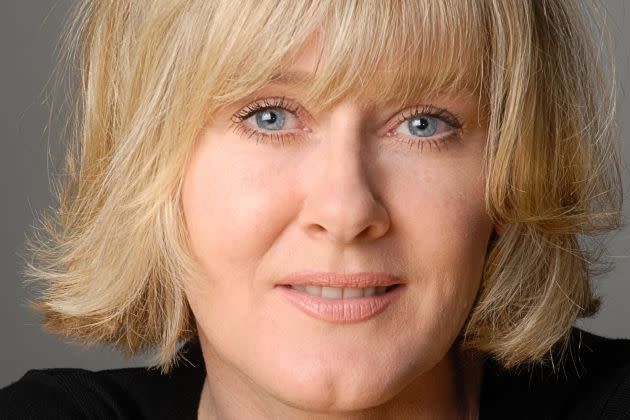‘Julia’ Star Sarah Lancashire Makes a Case for Stories of ‘Hope and Aspiration,’ Urges the Industry to Be Kind: ‘We Are Codependent’

“Julia” star Sarah Lancashire has a message for the whole industry: Be kind.
“They say the two happiest days of when you have a boat are the days you buy it and the day you sell it. My favorite moments are getting the job and the final wrap, but as long as we have each other, as long as we decide we are a codependent industry, I want to be a part of it. Kindness is so important,” she stressed at Goteborg.
More from Variety
Cannes Chief Calls David Fincher 'One of the Most Important Filmmakers in the World in Recent Years'
“You have to learn to collaborate. The best directors are the ones who want to work with the actors. But there are still quite a few of them who prefer backseat driving.”
During a chat with Lars Blomgren, head of international at Media Res, Lancashire opened up about her career.
“When I was 24, I had two babies and left them with my mom to look after. I was doing a show at West End, for minimum wage. After a year, having made no financial gain at all, I really had to stop and question what I was doing and why,” she recalled.
An offer to do “Coronation Street” changed everything.
“On most days, I could put my children to bed and it changed my view of what I could do as an actor. Also, when doing that show, I met writers who were just cutting their teeth: one of them was Sally Wainwright. 30 years later….”
They made the crime drama “Happy Valley,” where Lancashire got to play one of her most acclaimed roles: that of sergeant Catherine Cawood.
“You might become too emotionally involved [in a role] and that happened to me too. Catherine was one of these characters, so was Julia. It’s hard to walk away, to say goodbye, but you have to. You have to make way for other things,” she said, also opening up about the last episode of the third, and final, season.
“There was really something unresolved – emotionally. We have a long history with Sally, and these foundations made it possible for us to talk. Because, after all, I was asking her to manipulate what she has written.”
Still, while the viewers had to wait eight years for the third season, the actors involved jumped at the chance to return.
“We were waiting for the young actor, who played my grandson, to turn sixteen. He was eight when we started,” she admitted.
“James Norton’s career has taken off, so the fact that he still wanted to stand on these moors… We couldn’t have done it if people didn’t want to come back.”
“Two years before Sally started to write, we began to talk. We had this agreement that we won’t go further than the third season, also because in Britain, you have to retire from the police force at 55. Retiring her was a good way to close this story.”
While “Julia” was another career highlight – “She was glorious. Another one I will mourn” – Lancashire will be focusing on producing next.
“I should have done it 20 years ago, but the person I wanted to do it with wasn’t available: My husband. He was busy with his day job,” she laughed.
“It came out of lockdown: a small production company where we can develop our own ideas, have fresh takes on existing ideas and focus on a handful of passion projects. Now, we found a book, or it found us, which will be fiercely difficult to adapt and it will cause us many headaches.”
“I am at the stage when it’s a natural thing to do. I have confidence I didn’t have before, which only comes with age. You stop caring.”
But actors are still high on her list.
“It’s a misunderstood, cruel profession. If you can get through one decade, let alone seven, you have done very well. All the way there are snipers waiting to take you out,” she noted.
“I look at these top-tier actors, the McKellens, the Jacobis, the Denchs and the Maggie Smiths, the thing that holds them there is a formidable talent. They are who you aspire to be, of course, but there are quite a lot of dangers in getting there. Age being a big one, certainly for actresses.”
A writer’s daughter, she still feels responsibility towards them, she said.
“When you grew up in that environment, you know that squeezing every word on the page is pain and torture, as it was for my father. It probably destroyed him in the end. I know there are tears and tears of people involved in this. But there is one reason why we are all standing on set and it’s the writer,” she said, urging new creators to stick to their gut.
“What’s popular now won’t be in 5 years. We do need stories of hope and aspiration, of love and light and warmth. If, as a writer, you are compelled to write something you believe in, have the compunction to do it. Trust it.”
Best of Variety
Sign up for Variety’s Newsletter. For the latest news, follow us on Facebook, Twitter, and Instagram.

